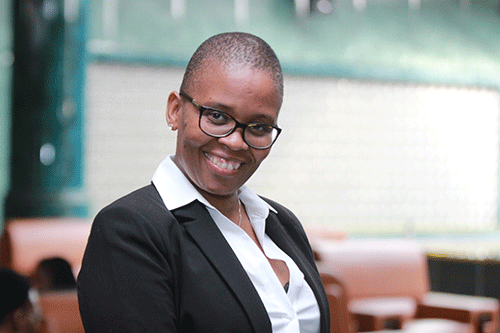The justice ministry is thinking of making pro bono work compulsory for lawyers so that members of the public who cannot afford legal representation but are in dire need may be represented.
Justice minister Yvonne Dausab said during a consultative meeting yesterday that a disproportionate number of people in the country cannot afford legal representation due to high legal fees. Thus, having lawyers take on cases for free will give the public access to legal services.
Pro bono means voluntarily taking on a client’s legal work without expecting payment.
The minister said lawyers need to go back to the profession’s core principle, “service before gain”.
“Many Namibians are losing their livelihoods. They are losing their homes and properties as they do not have the capacity to represent themselves in court,” said Dausab.
She added that the ministry, through the Directorate of Legal Aid, has spent over N$304 million in the past decade for the less privileged to have legal representation.
The ministry wants to amend parts of the Legal Practitioners Act, 1995 so that it may stipulate that all admitted legal practitioners are required to perform a minimum of 120 hours of pro bono work for clients with limited means.
Such a requirement will, however, be waived if the legal practitioner has already completed an equivalent number of hours in the interest of the public as determined by the Law Society of Namibia.
It can also be waived if the legal practitioner makes a financial contribution equivalent to the 120 hours per year at the rate at which they charge to the Legal Aid fund.
However, should a lawyer not have the capacity to give free legal services due to reasons such as that they are operating a small firm with minimal profit margins, lack of funds, just started operating, or having any other hardships, they may appeal to the board for exemption.
The ministry’s former executive director Gladice Pickering said although Namibia is hailed for providing legal aid to those in need, the quality of work by the lawyers is substandard.
“The quality of work done for Legal Aid by lawyers is regrettably low. Lawyers are doing substandard work, and at times do not attend to their clients. They are more concerned with what they can gain from the client rather than what they can do for them,” said Pickering.
According to her, if more lawyers were to take on a number of pro bono cases, it would reduce the amount spent by the government on legal aid.
Ethics questioned
Dausab questioned the ethical values of lawyers, citing that despite the legal profession being a noble one, legal practitioners are more concerned with what they can get from their clients rather than what they can do for them.
“Everything these days is linked to money. There is a need for self-introspection. We have lost that caringness within our society,” she stressed.
According to her, there is an increasing number of legal practitioners who are bringing the profession into disrepute.
“We are seeing more and more lawyers ‘eating’ trust money, and more are involved in illegal activities. This is eating away at the confidence and trust that the public has in the rule of law,” said Dausab.
She observed that despite the legal fraternity being self-regulating, legal practitioners are afraid of holding each other accountable.
“There is a complete collapse within the legal fraternity in terms of accountability. Even if there is clear evidence that a lawyer has been unethical, no one would call them to order because at times they are also guilty of the same conduct,” she continued.
– mamakali@nepc.com.na



